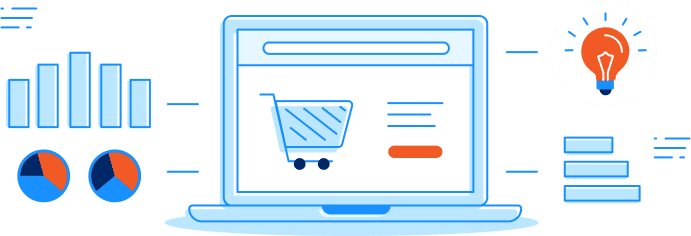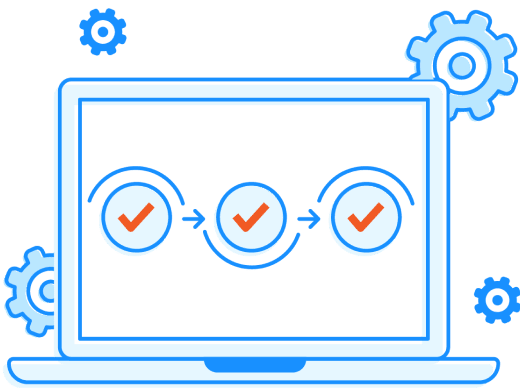Everyone is looking for new ways to get ahead of the curve, especially to remain competitive in the modern retail market. This means staying on top of all the relevant data and information, so your business can make informed decisions and seize key opportunities.
This data can include stock prices, product details, company contacts, and so much more.
But staying up-to-date with all this info would mean having to keep an eye on every web page out there. Do you want to then share the data with others? You’d have to copy and paste it manually into a document. That’s a big hassle!
This is where web scrapers can come in handy.
What Is Web Scraping?
Web scraping is sometimes referred to as data scraping, data extraction, or web harvesting.
The process involves extracting data and content from websites using bots. Then, the data collected is automatically exported into spreadsheets or an API for sharing and analysis.
If you have ever copied information from a website and pasted it somewhere else, then you have done the exact same job that web scrapers perform. The difference is that web scraping tools can perform the task much quicker and can be very cost effective.
Web data extraction is generally done by businesses in order to stay informed of any data relevant to their market, like price comparisons, or market research.

Web Scrapers vs Web Crawlers
Web crawling is similar to web scraping in that it also identifies and finds relevant data from target websites. The main difference between the two is that web crawling generally gathers more generic information, while web scraping provides specific data on categories set by the user.
How Do Web Scrapers Work?
First, you will give the web scraper one or more URLs. Then, it will load all of the HTML code for those sites. Some extraction tools will load the CSS and JavaScript elements for the sites as well, if they’re more advanced.
To begin web scraping, you must decide on your target websites and what types of data are important to you. A scraper can extract all of the data you need, but the more specific you are about what you want, the faster it can gather it.
For example, you might want to scrape a certain business’ site for prices and model types, but you don’t care about the reviews. Leaving the review data out can help your web scraper tool work that much quicker.
Lastly, the web scraper will output all of the data it has extracted into a format that is easy to use, be that a spreadsheet or another database. This allows you to automate a process that would otherwise require a lot of extra time and labor.
The truth is that there’s no one-size-fits-all when it comes to which tools might best serve your particular business needs.
Types of Web Scrapers
The differences between scrapers can get pretty intricate, but there are a few key categories you should know.
Self-Built vs. Pre-Built
With the right skillset, anyone can build a web scraper. It takes some fairly advanced programming knowledge but building it yourself allows you to specify every function to your exact needs.
On the other hand, there are many pre-built web-scrapers to choose from that can be downloaded and used whenever you want. Some have simple capabilities, but there are more advanced tools that provide the user with extensive options and data types.
Browser Extension vs. Software
A browser extension is an app that can simply be added to your web browser, making these types of web scrapers easy to use. However, staying inside the browser can have its own limitations.
Web scraping software can be a little less convenient since it must be downloaded and installed to your computer, but these usually have higher capabilities and more advanced features.
Cloud-Based vs. Local
A web scraper based locally will run on your computer’s capabilities, using its CPU and/or RAM to function, and relying on your internet connection. This means that your computer could potentially be out of commission when your web scraper is in use.
With a cloud-based scraper, off-site servers are usually provided by the company who developed the scraping tool. This means that your computer is free to be used for other tasks while the scraper does its job, and you will be alerted when your data is ready for export.

Web Scraper Use Cases
Web scrapers are used in a variety of fields for many different reasons. There’s more to these tools than their ability to aggregate data.
Here are a few popular use cases:
- Price Monitoring – Companies can use scraping tools to monitor their own product prices across different retailers, as well as competitor product prices. This information can help inform businesses on how they can competitively price their merchandise.
- Market Research – Data from scraped social media and competitor web pages can inform companies of trends and movements in the market, allowing them to stay on top of any relevant news and information.
- Sentiment Analysis – Web scrapers can gather data on shopper sentiments and how consumers are feeling about a particular company or product. This isn’t limited to just reviews but can also include social media posts.
- Lead Generation – Scrapers collect contact information for potential customers or clients that can be used by companies for marketing purposes.
Which Web Scraper Is the Best?
If you’re considering using a web scraper for your business, you might be wondering which one is the best for you. The truth is that there’s no one-size-fits-all when it comes to which tools might best serve your particular business needs.
For some, a pre-made scraper might be the best fit, especially if the data you want isn’t too complex or complicated and you’re simply looking to automate the process.
For others, a simple web scraper might be too surface level. Some software offers basic web scraping capability with added features that can make your data extraction and analysis even easier.
If you’re considering using a web scraping tool for the purpose of gathering pricing data and comparisons, consider opting for Wiser’s Wiser’s Price Intelligence Intelligence product. This software not only makes it easier to see all historical pricing data across your catalog and competitors, but is more advanced than basic web scraping. The platform also comes with easy-to-follow dashboards and heatmaps that highlight how and where you can increase your margins, drive up revenue, increase sales, and so much more.
Visit Wiser.com today to get started.














